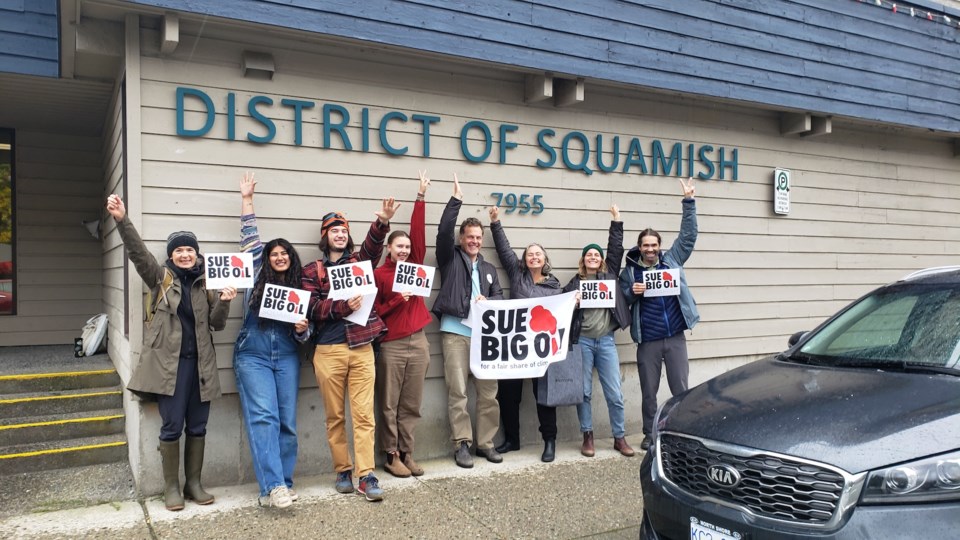The District of Squamish took a step towards adding its name to those of other B.C. municipalities as part of the Sue Big Oil campaign, which plans to take legal action against oil companies for their involvement in creating climate change.
At an Oct. 24 committee of the whole meeting, council members voted 5-2 in favour of joining a class action lawsuit against oil companies, pledging $1 per resident or about $25,000 in doing so in the 2025 budget. Mayor Armand Hurford and councillors Lauren Greenlaw, Jenna Stoner, Chris Pettingill and John French voted in favour of the motion, while councillors Andrew Hamilton and Eric Andersen voted against it.
“We need bold action and leadership,” said Greenlaw. “This is the most important moment in human history, and we need action.”
Greenlaw said some municipal reports note that a one-metre sea level rise could displace nearly 60% of the Squamish population and result in over $400 million in damages.
“And that is just flooding. We're not talking about fires; we're not talking about heat domes,” she continued. “This is a massive cost, and I think we need as fast of action as we can have.”
Council also unanimously voted to receive a legal opinion from the law firm Arvay Finlay available to municipal governments that explains some of their options for cost recovery from fossil fuel companies.
While agreeing in principle with the delegation from West Coast Environmental Law, who were there to ask the municipality to join the action, Hurford cautioned the council against making financial decisions based on a delegation's request. Hurford said he hoped the legal opinion supported the information they heard and described it all as “a bit of a leap of faith.”
“But I do think it's an important initiative, so I'll take that leap,” he said.
Neither Hamilton nor Andersen spoke directly about why they voted against the motion, as council was pressed for time.
However, Andersen said earlier in the meeting he saw a “complex picture,” noting Carbon Engineering was now owned by a subsidiary of Occidental Petroleum, among other things. He was in support of a motion—that ultimately did not pass—that would see the topic addressed further at a strategic plan review.
Andrew Gage, a lawyer with West Coast Environmental Law, told council that typically, when a class action lawsuit reaches about $500,000 or more raised in funds, then it can take the next step, which is a certification stage. That stage asks a judge to certify whether or not the case should proceed as a class action.
If council ratifies this decision at a future regular business meeting, then it would join Gibsons and View Royal as the other municipalities that have joined the campaign. With that in mind, there would still be a ways to go with other municipalities to join the campaign, as those three towns combined have a population of about 40,000 people, equating to about $40,000 pledged.
Previously, the City of Vancouver opted to join the campaign, but the city’s new elected officials have since abandoned the commitment.
View this discussion on the District of Squamish’s YouTube channel.





